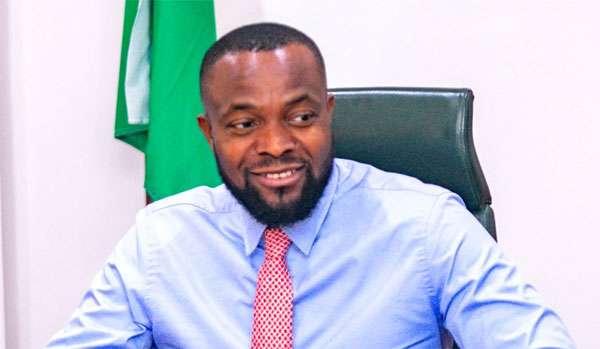

…As MTN pushes for regional integration in telecommunications
The Federal Government will fund 75 new research projects from October 1, 2025, while moving to establish hyperscale data centres in collaboration with global technology firms, part of a broader strategy to strengthen Nigeria’s digital ecosystem, secure data sovereignty, and position the country as an innovation hub in Africa.
Minister of Communications and Digital Economy, Bosun Tijani, made the announcement at the GITEX Nigeria 2025 event in Lagos. He said the new research support scheme, to be rolled out through the National Information Technology Development Agency (NITDA), will target researchers, startups, corporates, and the Nigerian diaspora, aiming to deepen participation in digital innovation and build a globally competitive ecosystem.
“On October 1, we will launch a scheme supporting 75 research projects. This investment will reinforce Nigeria’s position in the global digital economy,” Tijani said, noting that government alone cannot deliver the scale of infrastructure required for a thriving digital economy. He encouraged startups and corporates to leverage government initiatives and contribute to innovation within Nigeria and beyond.
Tijani highlighted Lagos as one of the fastest-growing cities in the world, with approximately 2,000 new residents arriving daily, underscoring the urgency of robust digital infrastructure. He stressed that Nigeria’s digital policy must go beyond catching up with other nations and focus on building resilient systems that sustain long-term innovation.
NITDA Director General, Kashifu Inuwa Abdullahi, revealed that the agency is collaborating with big tech companies to establish hyperscale data centres in Nigeria, a move designed to guarantee data sovereignty and strengthen local digital capacity. Speaking at the 3rd biennial corporate governance and enterprise development conference in Lagos, Abdullahi said the initiative is part of the government’s ‘Cloud First Strategy’, which aims to ensure critical national data remains within Nigeria’s borders.
“Currently, we do not have data sovereignty; our data resides on platforms like social media, Google, and Microsoft, which control what we see, believe, and purchase. We are working with global tech companies and developing laws to build hyperscale data centre capacity in Nigeria,” he explained.
Abdullahi added that Nigeria is developing a National Artificial Intelligence Strategy, including standards for AI adoption and an ethical framework for deployment. He also noted that the forthcoming ‘Online Harm Protection Bill’ will harmonise online and offline regulations, while homegrown large language models will reflect Nigeria’s cultural context and societal priorities.
He further explained that emerging technologies require a regulatory intelligence framework that prioritises collaboration and practical applications before introducing regulations.
MTN Nigeria Chief Operating Officer, Ayham Moussa, called for regional integration in telecommunications to reduce data and roaming costs, making cross-border communication more seamless and affordable. He emphasised that community engagement, state-level investments, and policy harmonisation across African countries are critical to improving service reliability and reducing costs.
Moussa disclosed that MTN operates around 40,000 kilometres of fibre lines across the continent, but vandalism and inadequate protection of critical infrastructure continue to undermine connectivity. He noted that power supply issues accounted for 70 per cent of network downtime, while over 1,700 fibre cuts were recorded in the last six months.
He stressed the importance of robust infrastructure and advanced connectivity solutions to unlock Africa’s digital potential. “We are at a pivotal moment in Africa’s digital journey. The demand for connectivity is soaring, and we have a collective responsibility to provide resilient, scalable, and accessible infrastructure,” Moussa said.
He added that MTN is working closely with the Nigerian Communications Commission and other stakeholders to raise awareness, protect infrastructure, and strengthen power support for telecom sites. Moussa also called for harmonised processes and practices across states and the country to enable faster, cheaper service delivery that will benefit users in the long term.










